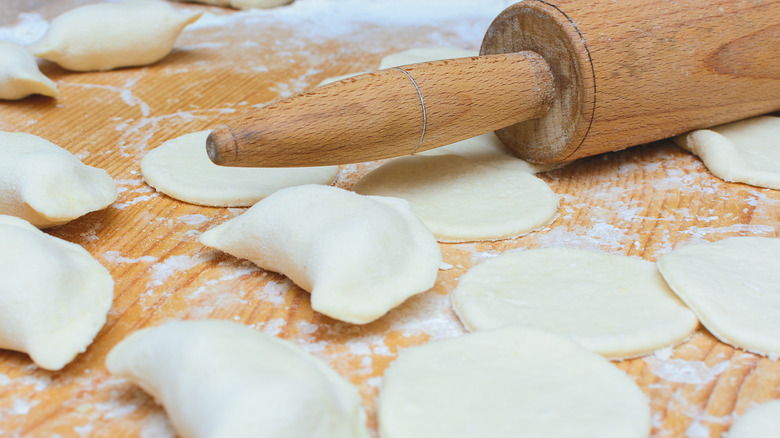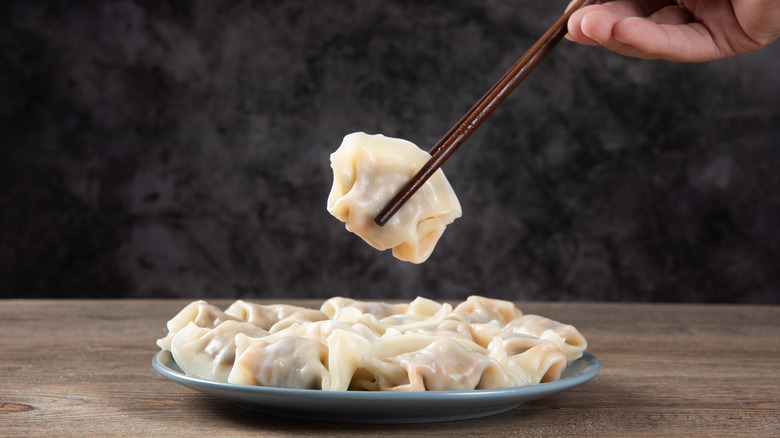Why Hot Water Dough Is So Common In Chinese Cuisine
Simplicity in food is often key to why a particular ingredient catches on in cuisine. Hot water dough, for instance, is just a combination of flour, hot water, and salt, plus sometimes oil (via Earth to Veg). This mixture, sometimes also called scalded dough, is used in cultures around the world. Stuffed dumplings are one prime example of a dish that uses it, from Korean mandu and Japanese gyoza to European pierogi and Russian pelmeni. It's also made into some other foods, like stuffed bread, flatbread, laminated bread, and turnover varieties across the world.
China is one of the top cultures cooking and consuming hot water dough, both presently and historically. It consistently uses it in dumplings, pancakes, and a dim sum staple called shumai, Earth to Veg notes. According to Bite, shumai was likely invented during the Ming Dynasty (A.D. 1368-1644, per History), when an entrepreneur used leftover ingredients from a steamed bun restaurant to make open-faced buns.
Long before that, as recounted by Chili House, a chancellor from the Three Kingdoms Period (A.D. 220-280) needed to feed soldiers after they lost their cooking supplies, so he made pancakes on shields. Even further back, notes Chef One, a doctor living in Eastern Han (A.D. 206-220), created dumplings to warm people up during a cold winter. So hot water dough has indeed been used a lot throughout Chinese history, but is that merely because of the ingredient's simplicity? Not quite.
A versatile ingredient
The way hot water dough is prepared is key to its usefulness. As explained by Earth to Veg, one can make a scalded dough by whisking together flour, salt, and possibly oil, then pouring and stirring hot water into the mix. Scalding the flour like this breaks down its proteins, preventing gluten networks from forming.
As a result, the dough remains stretchy but not chewy. Hot water also turns flour's dry starch into a gel material that easily absorbs liquid, thickening yet softening it. Some of the starch's complex carbs also turn into simple sugars, sweetening the taste. After all of that, the chef must knead the dough, then let it rest so it's certain to be easily shaped, accompanied by a delicate texture. The dough will be ready to use right after that, but it can also be kept, covered up, in the refrigerator for about a week.
Hot water dough is considered a foundational recipe, forming the basis of many dishes (via Earth to Veg). Understanding the science behind it makes it clear why. In the end, the dough is tender and easy to roll, perfect for making a thin container of other ingredients that's effortless to bite through. That's why, per The Spruce Eats, Chinese chefs are eager to use it for signature items like potstickers; scalded dough's level of elasticity holds shapes in an ideal manner. No wonder Chinese cooks have long considered it a hot commodity!

